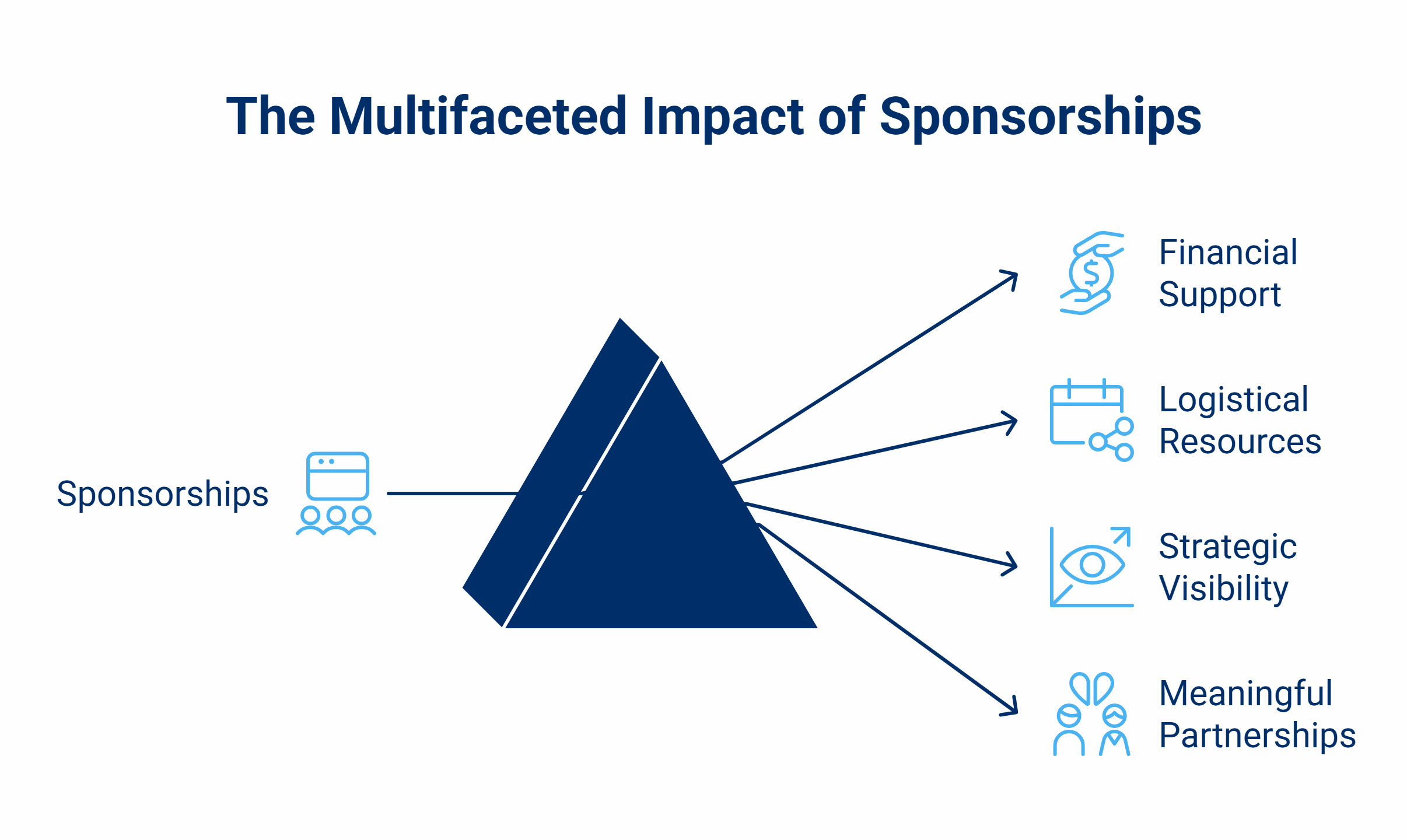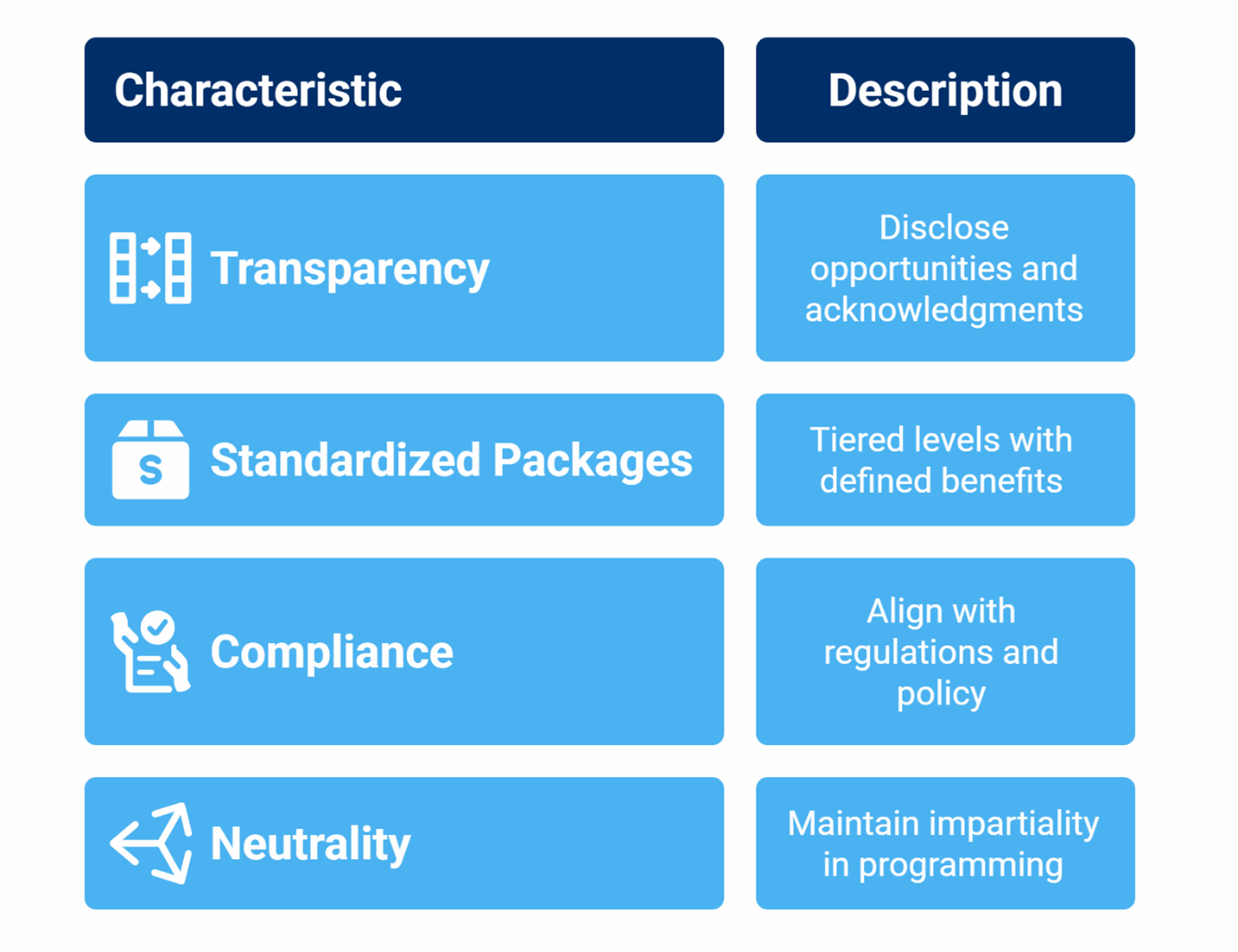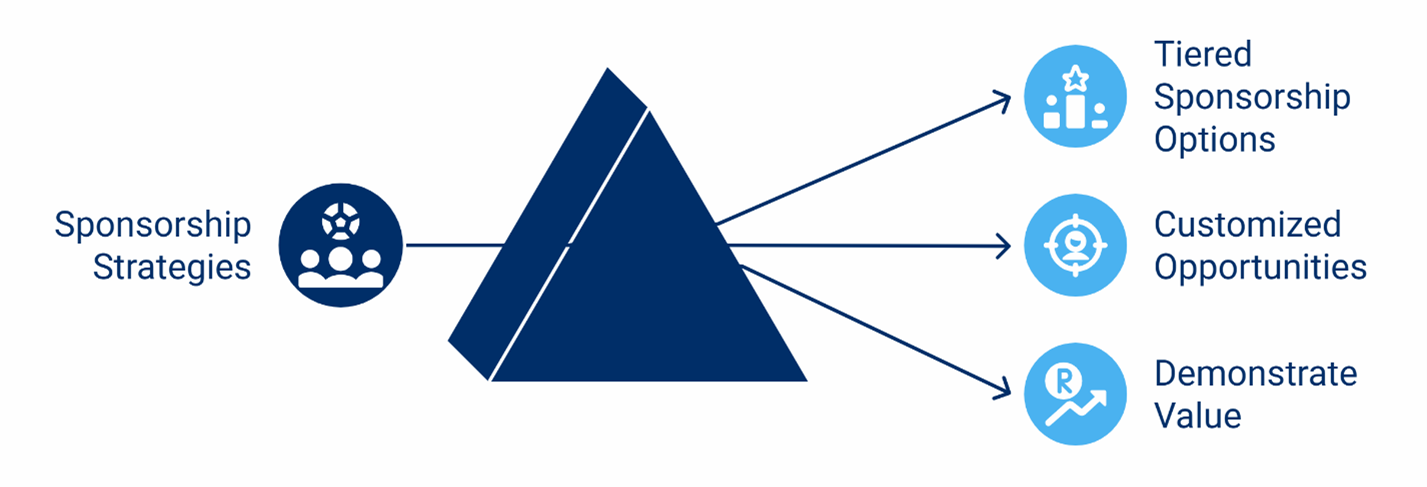Sponsorships in Conference Planning: A Strategic Guide
Sponsorships play a vital role in the success of conferences across all sectors. Whether you are organizing a government-hosted event or one led by a nonprofit, association, or private company, sponsorships can provide essential support, including financial backing, logistical resources, and strategic visibility. When executed well, sponsorships become more than just funding—they form meaningful partnerships that add value to both event organizers and sponsors.

Why Sponsorships Matter
Planning a conference involves balancing content quality and budget across many components, including venues, speakers, materials, technology, and marketing. Sponsorships can help cover these costs while adding professional credibility and improving the attendee experience. Sponsors also benefit by gaining target brand exposure, opportunities to connect with specific audiences, and alignment with relevant causes or industries.
To create a successful sponsorship program, it is important to focus on value exchange: what benefits can your event offer to potential sponsors? Whether it is visibility, engagement opportunities, or recognition, clearly communicating this value is essential.

Government Events: Focus on Integrity, Compliance, and Structure
Sponsors often support government events when their own mission aligns with public service, workforce development, or education. Government-hosted conferences must follow strict ethical guidelines, procurement rules, and standards to maintain public trust. That said, sponsorships are still possible when carefully structured—in fact, tiered sponsorship packages can be offered at government events, if they are standardized and fairly administered.
Key Practices
- Ensure transparency in sponsorship agreements.
- Adhere to ethical guidelines and procurement regulations.
- Offer standardized sponsorship packages to maintain fairness.
Nongovernment Events: Use Flexibility and Creativity
Nonprofit, academic, and private-sector events often have more flexibility in designing sponsorship programs—these settings allow for greater customization and more dynamic sponsor experiences.
Here are three useful strategies:
- Tiered Sponsorship Options: Provide several levels with clear benefits, such as signage, speaking roles, exhibit space, or digital advertising.
- Customized Opportunities: Allow sponsors to fund specific items, such as networking sessions, conference materials, or mobile apps, for more targeted exposure.
- Demonstrate Value: After the event, provide data on attendance, engagement, and reach to help sponsors evaluate their return on investment.
Sponsors in these environments often seek brand visibility, lead generation, and deeper engagement with key audiences.

Build Relationships, Not Just Revenue
Regardless of event type, the strongest sponsorships come from long-term relationships rather than one-time agreements. Start outreach early, communicate consistently, and deliver on all promises. After the event, express appreciation, share performance results, and ask for feedback to improve future efforts.
Final Thoughts
Sponsorships are more than simply a way to balance a budget: they are a strategic resource that can improve quality, expand your event’s reach, and strengthen your organization’s credibility. With a clear structure, a focus on transparency, and a commitment to shared value, your sponsorship program can benefit both your event and your partners, in both a government and nongovernment setting.
Need help with meeting support?
PAI Consulting can help you take your meetings to the next level.
Contact us today for a consultation and let our meeting support experts help your meetings succeed.
Contact us for a consultationBack to Meeting Your Needs home.
Do you have questions or concerns about meetings? Share them with us!
PAI Consulting | Helping you succeed. Learn more.
Any opinions expressed in this article are those of the author and not the opinion of PAI Consulting. In addition, this article may contain links to third-party websites. PAI Consulting does not endorse or make any representations about them, or any information, software, or other products or materials found there, or any results that may be obtained from using them.
We welcome thoughtful and respectful discussion.
To keep this space safe and productive, please follow these guidelines:
Be respectful. Personal attacks, name-calling, and abusive language will not be tolerated.
Stay on topic. Keep comments relevant to the content of the post.
No spam or self-promotion. Links and promotions that are not relevant to the discussion will be removed.
Use appropriate language. This is a professional environment—please avoid profanity or offensive language.
Protect privacy. Don’t share personal information—yours or anyone else’s.
You may reply to, like, or flag other comments.
Comments are moderated and may be edited or removed at our discretion.
By commenting, you agree to abide by this policy.
